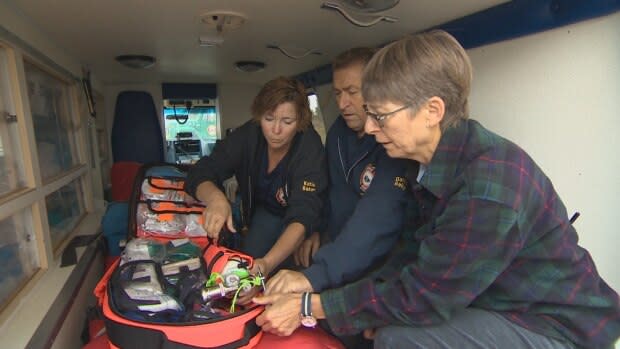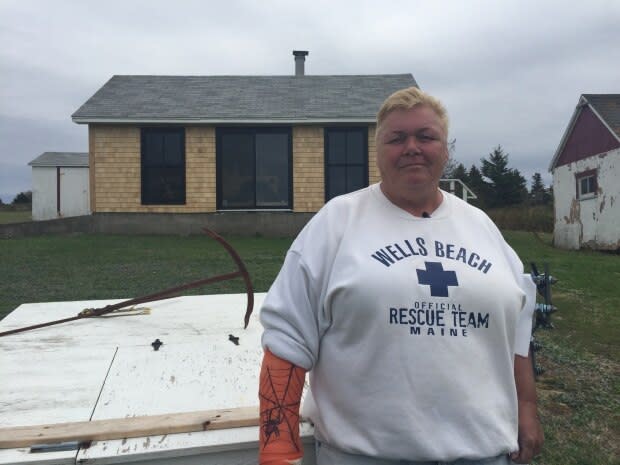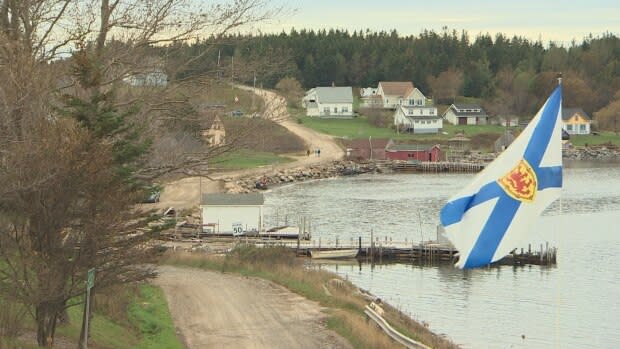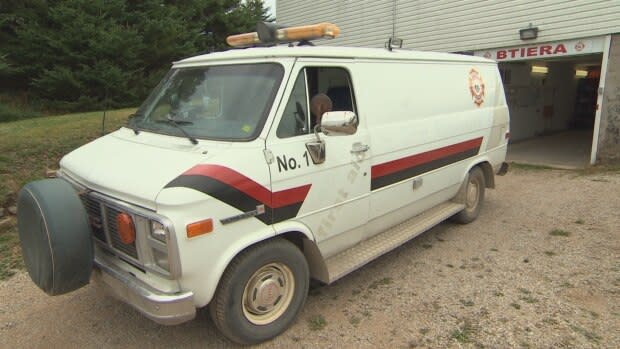How Big Tancook Island manages emergencies without a single paramedic
If you call 911 due to a medical emergency on Big Tancook, a small island of 120 year-round residents off the southern coast of Nova Scotia, no paramedics will come to your home.
Instead, a seasoned team of volunteers that includes three family members will roll up within 10 minutes or so in a 30-year-old decommissioned ambulance bought using money raised through a bottle drive.
With the mainland an hour's ferry ride away, the six medical first responders who are part of the Big Tancook Island Emergency Response Association have long stepped up to save the lives of friends and family. It's a rewarding but also grueling job.
"It's dealing with seeing your friends hurt or their children. But at the same time it's something feel-good, it is community," said Peter Stephens, the association's chair and medical first response co-ordinator for the island.
The team is trained to offer advanced first aid and is an example of how residents must depend on themselves in order to survive on Big Tancook, a place they have chosen to live but which is cut off from many of the services most Nova Scotians expect.

This summer, the team was a welcomed sight for Joanne Ford after she was forced to jump from her ATV when a ladder she was transporting on her lap from her brother's home jammed the accelerator.
"I tried to reach the kill switch. I couldn't reach it because of the ladder, and probably within 20 to 30 seconds I had to make a choice to either jump or hit the house," said Ford, who lives part time on the island.
She hit the ground hard and the ATV careened into some bushes. When she caught her breath she realized she was covered in blood and couldn't move her arms. Her partner called 911.
Within minutes, medical first responders were there. They checked her over, put one of her arms in a sling, loaded her up and took her to the island's recreation centre, which doubles as the emergency association's base.
"I was in a lot of pain, but I knew I was in good hands. I just felt very comfortable with them," said Ford. "They were just phenomenal, the way they were taking care of me."
There are no hospitals or clinics on the island, so if someone suffers a serious injury they're either shipped out by ferry or flown out by LifeFlight helicopter. Ford was in such bad shape she was flown to hospital in Halifax.

Her right wrist was broken in several places and the elbow on her left arm was dislocated. All the ligaments and tendons around her elbow had been ripped.
Ford spent five hours in surgery while doctors drilled pins into her arm to hold her elbow in place to heal. She now has a cast on her right arm and metal rigging drilled into her left arm to hold her elbow in place.
While medical first responders have less training than paramedics, they can perform a litany of services, including administering some drugs, using a defibrillator and treating cuts.
The Big Tancook team keeps patients stable and travels with them on the hour-long ferry ride to Chester, N.S., where they're handed off to paramedics. If things are really serious they stabilize patients to be flown out.
"We have had everything from scraped knees, cuts with a kitchen knife, heart attacks, car accidents, hunting accidents, we run the whole gamut," said Stephens.

Katie Baker, her husband, David Baker, and his sister Bonny Cross, are all medical first responders on the island, and they're often called out to the same emergencies together.
"We don't even have to talk about it. As soon as we get to a scene we know what it is and what we need to do," said Katie Baker. "I think it's really easy to work together. Like I say, we know each other, we know everybody's strengths, weaknesses."

Stephens said members of the local fire department can also help out during an emergency, since most of them have first-aid training.
On average, the association gets about 14 emergency medical calls a year. Thankfully, most are not life-threatening, according to Stephens.
But they can be rough on volunteers. Many involve friends and calls can come at any hour.
"It's callouts at two o'clock in the morning, spending hours on the ferry going up and being stuck in Chester for hours until the ferry comes back," said Stephens.

Nova Scotia's Emergency Health Services provides the Big Tancook Island Emergency Response Association with medical supplies, but the community has come together to pay for almost everything else.
A bottle drive by island residents brings in about $2,000 a year and helped buy and maintain the medical response vehicle, which allows medical first responders to pick up patients and get them to the ferry or a helicopter.
Stephens said the next goal is to raise enough money to replace the 30-year-old vehicle with one that's only a few years old. Fundraisers like raffles, dinners and donations help cover off the group's other expenses.
But while the sense of community brings advantages, it can also turn some residents off from volunteering.
"Some people don't like to see blood or want the responsibility," said David Baker. "In some areas, I mean you might not know the person you are going to treat and stuff. But here it's always your friends, your neighbour, your family. And a lot of people don't want the responsibility."

It's important to attract new volunteers because all the current medical first responders are fishermen, and there are times such as lobster season when none are on the island and other people who know first aid must be on call.
David Baker would like to see enough new medical first responders come on board so there are always two or three on the island at all times.
However, Stephens said he's not worried about those numbers. People on the island, he said, have managed to get by with first aiders filling in when medical first responders are off island, so there's no pressing need to train more.
"Would it be nice to see more? Yes. Would it change the situation? Not necessarily, because they're going to be stuck in the same boat. They're either going to be on the mainland doing shopping, or fishing or something else. So it is what it is, you work with what you have and you do the best you can," he said.

Meanwhile, Ford is still healing up.
She expects to have her cast off soon but isn't sure how long it will be before she can have the metal rigging in her left arm removed.
She said the first responders will never know how much their help meant to her.
"I thank them from the bottom of my heart and my family's heart," said Ford. "They were the people that took care of me and made sure I got what I needed to get and where I had to go."
MORE TOP STORIES:


